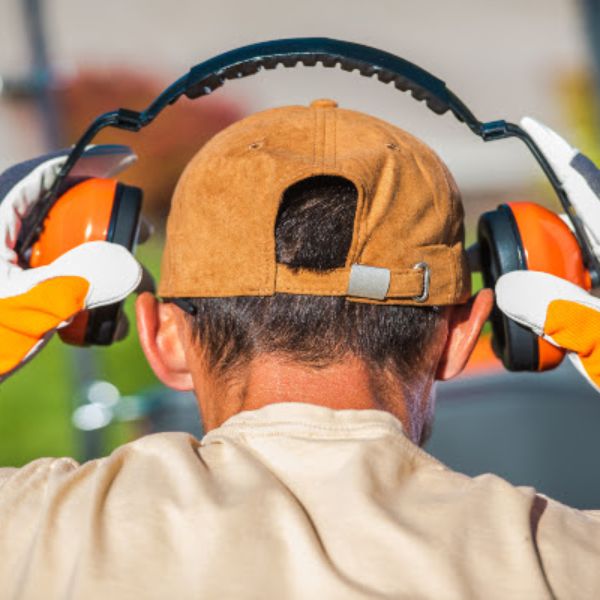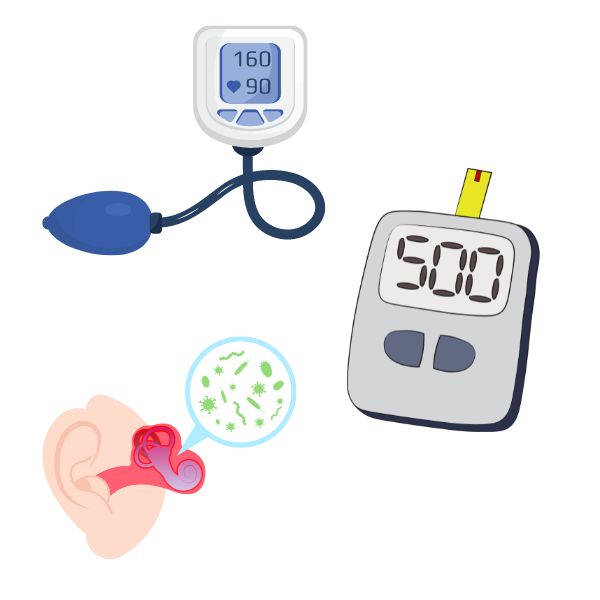Causes of Sensorineural Hearing Loss
Sensorineural hearing loss is the most common type of permanent hearing loss, affecting the inner ear or the auditory nerve. This type of hearing loss often requires hearing aids for effective management and treatment. Understanding the causes can help in addressing the condition and seeking appropriate care. Here are common causes of sensorineural hearing loss:

1. Age-Related Hearing Loss (Presbycusis)
Natural Aging: As individuals age, the hair cells in the inner ear and the auditory nerve can deteriorate, leading to gradual hearing loss. This condition typically affects both ears and worsens over time.
2. Noise-Induced Hearing Loss
Exposure to Loud Noises: Prolonged exposure to loud noises, such as heavy machinery, loud music, or explosive sounds, can damage the delicate hair cells in the inner ear, leading to permanent hearing impairment.
3. Genetic Factors
Inherited Conditions: Some people are genetically predisposed to hearing loss, which can be present at birth or develop later in life due to hereditary factors.
4. Ototoxic Medications
Medication Side Effects: Certain medications, including some antibiotics and chemotherapy drugs, can cause damage to the inner ear, resulting in sensorineural hearing loss.
5. Ear Infections and Diseases
Chronic Conditions: Persistent ear infections or diseases such as Meniere's disease can affect the inner ear and auditory nerve, leading to sensorineural hearing loss.
6. Physical Injury
Trauma: Head or ear injuries, such as those sustained from accidents, can damage the inner ear structures or auditory nerve, resulting in sensorineural hearing loss.
7. Medical Conditions
Systemic Health Issues: Conditions such as diabetes or high blood pressure can impact blood flow and overall ear health, potentially contributing to sensorineural hearing loss.
8. Congenital Conditions
Birth Defects: Some individuals are born with congenital conditions that affect the inner ear or auditory nerve, leading to sensorineural hearing loss.

Sensorineural hearing loss is typically managed with hearing aids, which can help restore and improve hearing function. Addressing hearing loss sooner rather than later is crucial for better outcomes and maintaining your quality of life. Early intervention can significantly enhance your hearing experience and overall well-being. If you suspect sensorineural hearing loss, don’t wait—contact us today for a comprehensive hearing assessment and personalized care tailored to your needs. Let us help you take the first step towards clearer hearing and a better quality of life.
